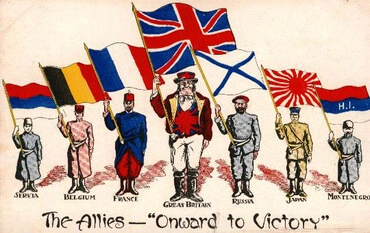1
主がシナイ山で、モーセと語られた時の、アロンとモーセの一族は、次のとおりであった。
2
アロンの子たちの名は、次のとおりである。長子はナダブ、次はアビウ、エレアザル、イタマル。
3
これがアロンの子たちの名であって、彼らはみな油を注がれ、祭司の職に任じられて祭司となった。
4
ナダブとアビウとは、シナイの荒野において、異火を主の前にささげたので、主の前で死んだ。彼らには子供がなかった。そしてエレアザルとイタマルとが、父アロンの前で祭司の務をした。
6
「レビの部族を召し寄せ、祭司アロンの前に立って仕えさせなさい。
7
彼らは会見の幕屋の前にあって、アロンと全会衆のために、その務をし、幕屋の働きをしなければならない。
8
すなわち、彼らは会見の幕屋の、すべての器をまもり、イスラエルの人々のために務をし、幕屋の働きをしなければならない。
9
あなたはレビびとを、アロンとその子たちとに、与えなければならない。彼らはイスラエルの人々のうちから、全くアロンに与えられたものである。
10
あなたはアロンとその子たちとを立てて、祭司の職を守らせなければならない。ほかの人で近づくものは殺されるであろう」。
12
「わたしは、イスラエルの人々のうちの初めに生れたすべてのういごの代りに、レビびとをイスラエルの人々のうちから取るであろう。レビびとは、わたしのものとなるであろう。
13
ういごはすべてわたしのものだからである。わたしは、エジプトの国において、すべてのういごを撃ち殺した日に、イスラエルのういごを、人も獣も、ことごとく聖別して、わたしに帰せしめた。彼らはわたしのものとなるであろう。わたしは主である」。
15
「あなたはレビの子たちを、その父祖の家により、その氏族によって数えなさい。すなわち、一か月以上の男子を数えなければならない」。
16
それでモーセは主の言葉にしたがって、命じられたとおりに、それを数えた。
17
レビの子たちの名は次のとおりである。すなわち、ゲルション、コハテ、メラリ。
18
ゲルションの子たちの名は、その氏族によれば次のとおりである。すなわち、リブニ、シメイ。
19
コハテの子たちは、その氏族によれば、アムラム、イヅハル、ヘブロン、ウジエル。
20
メラリの子たちは、その氏族によれば、マヘリ、ムシ。これらはその父祖の家によるレビの氏族である。
21
ゲルションからリブニびとの氏族と、シメイびとの氏族とが出た。これらはゲルションびとの氏族である。
22
その数えられた者、すなわち、一か月以上の男子の数は合わせて七千五百人であった。
23
ゲルションびとの氏族は幕屋の後方、すなわち、西の方に宿営し、
24
ラエルの子エリアサフが、ゲルションびとの父祖の家のつかさとなるであろう。
25
会見の幕屋の、ゲルションの子たちの務は、幕屋、天幕とそのおおい、会見の幕屋の入口のとばり、
26
庭のあげばり、幕屋と祭壇のまわりの庭の入口のとばり、そのひも、およびすべてそれに用いる物を守ることである。
27
また、コハテからアムラムびとの氏族、イヅハルびとの氏族、ヘブロンびとの氏族、ウジエルびとの氏族が出た。これらはコハテびとの氏族である。
28
一か月以上の男子の数は、合わせて八千六百人であって、聖所の務を守る者たちである。
30
ウジエルの子エリザパンが、コハテびとの氏族の父祖の家のつかさとなるであろう。
31
彼らの務は、契約の箱、机、燭台、二つの祭壇、聖所の務に用いる器、とばり、およびすべてそれに用いる物を守ることである。
32
祭司アロンの子エレアザルが、レビびとのつかさたちの長となり、聖所の務を守るものたちを監督するであろう。
33
メラリからマヘリびとの氏族と、ムシびとの氏族とが出た。これらはメラリの氏族である。
34
その数えられた者、すなわち、一か月以上の男子の数は、合わせて六千二百人であった。
35
アビハイルの子ツリエルが、メラリの氏族の父祖の家のつかさとなるであろう。彼らは幕屋の北の方に宿営しなければならない。
36
メラリの子たちが、その務として管理すべきものは、幕屋の枠、その横木、その柱、その座、そのすべての器、およびそれに用いるすべての物、
37
ならびに庭のまわりの柱とその座、その釘、およびそのひもである。
38
また幕屋の前、その東の方、すなわち、会見の幕屋の東の方に宿営する者は、モーセとアロン、およびアロンの子たちであって、イスラエルの人々の務に代って、聖所の務を守るものである。ほかの人で近づく者は殺されるであろう。
39
モーセとアロンとが、主の言葉にしたがって数えたレビびとで、その氏族によって数えられた者、一か月以上の男子は、合わせて二万二千人であった。
40
主はまたモーセに言われた、「あなたは、イスラエルの人々のうち、すべてういごである男子の一か月以上のものを数えて、その名の数を調べなさい。
41
また主なるわたしのために、イスラエルの人々のうちの、すべてのういごの代りにレビびとを取り、またイスラエルの人々の家畜のうちの、すべてのういごの代りに、レビびとの家畜を取りなさい」。
42
そこでモーセは主の命じられたように、イスラエルの人々のうちの、すべてのういごを数えた。
43
その数えられたういごの男子、すべて一か月以上の者は、その名の数によると二万二千二百七十三人であった。
45
「あなたはイスラエルの人々のうちの、すべてのういごの代りに、レビびとを取り、また彼らの家畜の代りに、レビびとの家畜を取りなさい。レビびとはわたしのものとなる。わたしは主である。
46
またイスラエルの人々のういごは、レビびとの数を二百七十三人超過しているから、そのあがないのために、
47
そのあたまかずによって、ひとりごとに銀五シケルを取らなければならない。すなわち、聖所のシケルにしたがって、それを取らなければならない。一シケルは二十ゲラである。
48
あなたは、その超過した者をあがなう金を、アロンと、その子たちに渡さなければならない」。
49
そこでモーセは、レビびとによってあがなわれた者を超過した人々から、あがないの金を取った。







